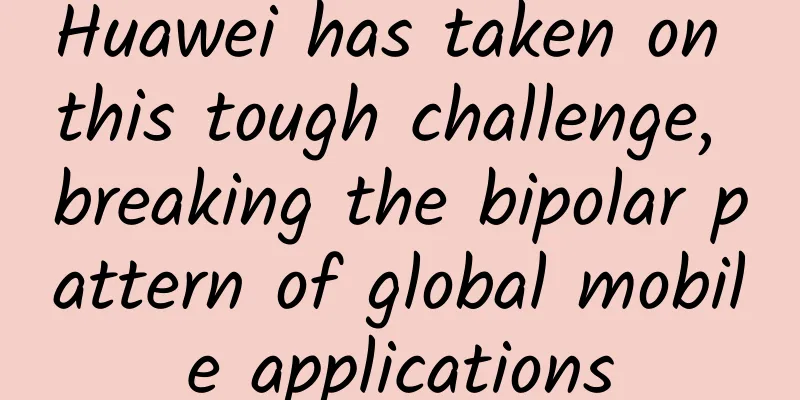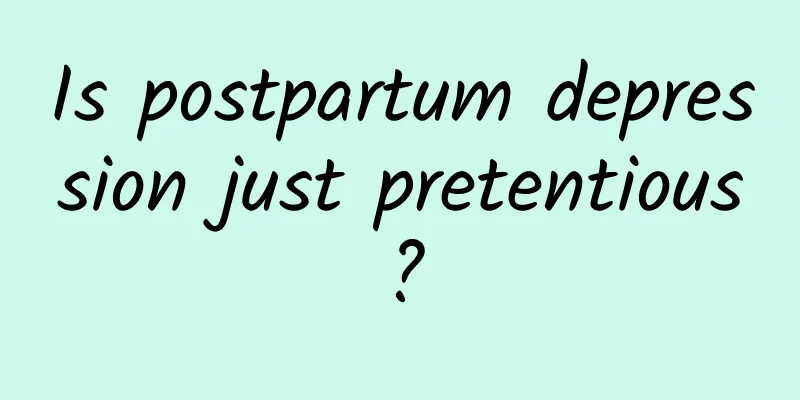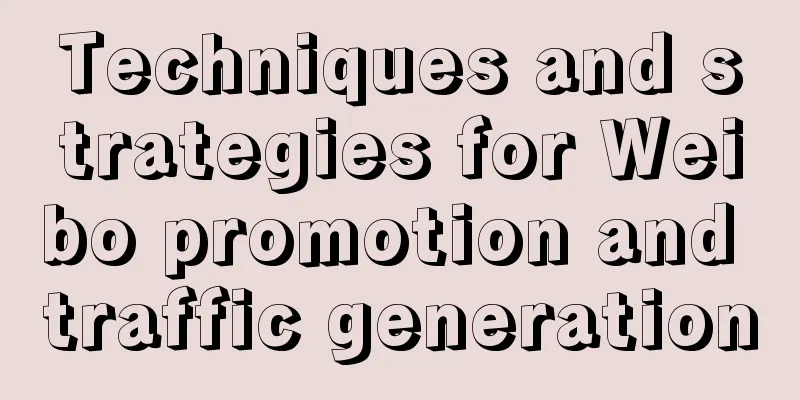Huawei has taken on this tough challenge, breaking the bipolar pattern of global mobile applications

|
This article is reprinted with permission from AI new media Quantum Bit (public account ID: QbitAI). Please contact the source for reprinting. "impossible." It is impossible to create a mobile application underlying ecosystem like GMS from scratch. This is the "mainstream" perception of 99.999% of the outside world after Huawei was announced to be "cut off" by Android GMS last year. Since the iPhone was launched, iOS was launched, and Android "followed suit" and quickly rose with the help of open source, the global mobile application ecosystem has had a brief competition. There have been giants such as Microsoft, Samsung, Alibaba, etc. in the arena, but in the end, the two that did not leave the table and formed a bipolar monopoly were Apple and Google. The App Store and Google Play are the most direct reflection of the mobile application ecosystem market structure. Over the past decade, no one believes that anything can be changed: everything has become so mature that it is almost solidified. However, Huawei came on the scene with a desperate attitude and the courage to burn its boats... One year later, it handed in its report card:
Quickly became one of the top three in the world. Moreover, this achievement is not only Huawei's self-affirmation, but also directly breaks the "tightening curse" that has plagued the global mobile ecosystem market for many years:
Up to now, the performance of Huawei HMS is a call for the opportunities of the times and the aspiration of developers to "carry the boat with water". It also means that it is time to break the hegemonic monopoly and re-evaluate the global mobile ecological market. What is the basis for the breaker?The most powerful proof is naturally performance . Still at Huawei's Songshan Lake Base in Dongguan, Huawei announced its report card one year after announcing the acceleration of the development of the HMS ecosystem:
Wang Yanmin, President of the Global Ecosystem Development Department of Huawei Consumer Business Group, also said that as of now, 80% of the world's top 3,000 applications have been listed on the Huawei App Store, which means that they can basically meet the daily needs of Huawei mobile phone users. In addition, the core capability layer, super terminal layer, and system layer have all achieved rapid iteration and improvement. The direct result of a series of achievements is: Huawei AppGallery has become one of the top three application ecosystems in the world. This is also the first time that after years of dominating the Android Google Play and App Store, there has been such a rapid growth in other application ecosystems, and global mobile developers have gained another strong competitive option. Wang Yanmin was quite emotional about this. He said that a year ago, when HDC (Huawei Developer Conference) proposed to build HMS, it faced great doubts. But Huawei has no choice but to take action, and it also believes that the HMS ecosystem will definitely have great potential. On the one hand, through long-term scientific research investment and accumulation, Huawei can provide technical support to developers. On the other hand, with 20 years of global experience accumulation, resource investment and market promotion, Huawei is also confident in its understanding and reach of users, platform resource output and win-win business with partners. Although Huawei has not specifically built a mobile application ecosystem before, in the process of serving partners of different customers globally for more than 20 years, Huawei has long been familiar with the policies and regulations, fiscal and tax differences, and mobile Internet infrastructure ecosystems and needs of different countries and regions, which became the basic prerequisite for HMS to rank among the top three in one year. It’s time to break the bipolar hegemonyAs we all know, the bipolar pattern of the global mobile ecosystem formed by Google and Apple has existed for many years. Although they have encountered challenges in the past decade, neither Microsoft nor Samsung has been able to break the monopoly of the mobile application ecosystem. The reason may need to be explained in two parts. As for the App Store, as a mobile ecosystem that is interdependent with the iPhone and the entire Apple iOS ecosystem, it is backed by Apple's powerful hardware products and supply chain system. As the best example of a product that integrates hardware and software, Apple has transferred its success in Mac computers to the mobile market. Then, due to the greater demographic dividend and potential of the mobile market, Apple has reached a new level, forming a closed loop and positive cycle of technology, business and ecology, which serve as barriers to each other. Therefore, the success of App Store is an integrated success. Android was originally acquired by Google for use in digital cameras. It was not until the iPhone became a huge success that Google realized that it could make Android the "iOS" of the open source field, take the mass line, fully mobilize the advantages of global OEM manufacturers and supply chains, reach areas that iOS could not cover in a short period of time, and gain a larger market share at a lower cost and a cheaper price. Google Play came into being. In addition, due to Google's successful experience in software technology application in the Internet era, whether it is search, maps, videos, emails, or developers' traffic distribution and commercial realization, there are mature models... As a result, Android's Google Play quickly rose after iOS's App Store, and by using open source to break the closed system, it became the largest mobile application ecosystem at a faster speed. Of course, while these two poles are making rapid progress, there are other ambitious players. Terminal manufacturers such as Samsung and Nokia, operating system giants like Microsoft, and transformed players such as Nokia, BlackBerry, Motorola... all want to build a developer ecosystem by creating a "system". But in the end they all were defeated and left the ring. Although each of them had their own mistakes and limitations, if we look back ten years later, there are some commonalities. For example, the timing of taking advantage of the wind . The only way to defeat martial arts in the world is to be fast. When the mobile Internet was just beginning ten years ago, the speed of grabbing market share became a key factor that developers were optimistic about and bet on. But whether it is Nokia, Samsung, or BlackBerry, it is difficult for the elephant to turn around. The past achievements have become a burden that is difficult to turn around in the new era. They were quickly defeated by the rapid iteration of Android, and eventually surrendered and joined the Android camp. In addition, companies like Microsoft underestimated the importance of software and hardware integration in the early days, especially the important experience that dominated the world in the Wintel era. However, in the mobile Internet era, this experience was first inherited by Android + Arm. Later, no matter how hard Microsoft tried, such as purchasing Nokia, it was of no avail. It could only watch Google rise to the top and dominate. Secondly, the hearts of developers . Apple and Google saw from the beginning that developers and a prosperous application ecosystem market would snowball and grow stronger in the future. So, everything starts from scratch. Apple and Google have all taken the best approach to call on developers, providing the fastest response and support, convenient access and support, and most importantly, a profit-sharing and win-win mechanism. After all, for Apple and Google, the mobile ecosystem is a brand new opportunity and business. Seizing it will allow the company to move to the next level. However, the old OEM giants and kings of the PC era obviously do not have as much urgency and motivation as Apple and Google. Therefore, the rise of iOS App Store and Android Google Play actually once again confirms the iron law of the Internet world:
As for the great truth, it is the simplest, and all Buddhas return to the same root. There is a famous saying in China with a longer history:
The people's support determines who will win or lose, and this has always been the case. However, times have changed. Compared with today's iOS App Store and Android Google Play, as market competition has weakened and the structure has stabilized, they have long since grown from the dragon-slaying boys into larger "dragons." The most typical example is the Apple tax. All developers, regardless of size, must pay a 30% commission, and there is no way to circumvent it. Whether it is WeChat or the parent company of "Fortnite", regardless of their size or importance to users, they have no bargaining power. When Huawei suffered unwarranted suppression from the Trump administration, Android was the first to respond, surprising developers around the world - after all, Huawei is the most important, largest and most influential developer for Android. The outside world can probably understand Google's considerations for policy and compliance, but they are still shocked by this suddenness. After years of being accustomed to the bipolar pattern, this "supply cut" made people begin to realize: The industry really cannot have only one option. Perhaps, it was the subtle emotions in this great era that were quickly transformed into a report card during Huawei's one-year construction of HMS. The public's support under the duopolyIn fact, the emergence of Huawei HMS can also be regarded as a historical choice: Developers all over the world have suffered for a long time under the duopoly mechanism. The industry calls for new competitive forces that can bring activation power. The desire to break the duopoly can also be seen from the fact that global developers voted with their feet and joined the HMS ecosystem construction. We can summarize the “public sentiment” in three aspects: First, sincerity . In the bipolar structure of Android Google Play and App Store, it is difficult for the two dominant parties to treat every developer as a VIP. Wang Yanmin once said in an interview:
So Huawei created HMS and HarmonyOS. It also believes that it is time for a challenger to build a new ecosystem that is fairer, more open, more trustworthy, and safer for consumers. Moreover, Huawei also quickly made developers see the difference. For example, TomTom, as a world-renowned Internet company, had a limited budget and a slow user development in an advertising-based ecosystem. However, in HMS, Huawei developed an exclusive low-cost first-launch promotion plan for TomTom based on its full understanding of TomTom, which enabled it to achieve rapid growth in a short period of time. Second, confidence and innovation . Confidence comes from terminal market share, while innovation comes from going through technology cycles together with partners. Breaking up the oligopoly is not something that can be achieved with just a verbal appeal. Huawei's potential also benefits from its market share in terminals. For example, in Russia, Huawei's terminal market share has long been at the forefront, and Huawei is willing to serve developers on an equal footing to achieve greater win-win results with them. In this case, the Online App of Sberbank, Russia's largest bank, has more than 67 million monthly active users and ranks first in downloads among Russian financial apps. In the HMS ecosystem, Sberbank cooperated with Huawei to integrate HMS's NFC capabilities in the Online App to achieve an innovative contactless payment experience. Within 10 days of being listed on AppGallery in October 2019, it developed 3.2 million users and helped 5% of Online users experience contactless payment. Finally, openness of advanced technologies and services . To build an open ecosystem, we also need to continuously output the most cutting-edge technologies and services to empower developers and expand the territory together, rather than using the most advanced technologies for our own use and leaving the ordinary version for developers. Of course, looking at Huawei's HMS ecosystem achievements this year, we also stand on the pain points of current developers : The demand of global small and medium-sized developers to "go overseas and enter China". On the one hand, China's outstanding developers and enterprises have the desire to go overseas smoothly, and to share the excellent achievements and experience of China's mobile Internet development so that more countries and regions around the world can benefit from it. △The establishment site of the Overseas Alliance On the other hand, overseas developers and applications also hope to come to China, which has a huge market dividend and scale. At present, neither Google Play nor App Store has a strong motivation to meet the needs of entering China and going overseas. On the one hand, they have little understanding of China's national conditions and users, and it is difficult for them to help overseas developers enter China. On the other hand, they have no motivation to actively help Chinese companies go overseas. There are even Chinese developers who have been unfairly and unexplainedly destructively removed from the shelves, not to mention further two-way support. Therefore, under this demand, the emergence of Huawei is more like a product of market competition and the law of natural selection. Huawei says that its advantage lies in the fact that, whether going overseas or entering China, Huawei can help developers with customer acquisition, product localization, and policy compliance. After all, this is how Huawei has navigated its way forward step by step over the past 20 years and has successfully passed through multiple technology cycles. Moreover, at this moment, there is no reason why developers should not believe in Huawei's route, commitments and statements. For Huawei, the mission of the HMS ecosystem starts with its own survival, but after the initial victory, it also ignites hope for more developers. This also explains why, as a new ecosystem, the HMS ecosystem can be a huge success. Of course, the above reasons are more from the perspective of developers. If we look at the technology development trends and the opportunities we are facing now, we may be able to understand this deeper problem more directly. Why HUAWEI? Why Now?Why Huawei? First, Huawei has the strongest driving force for change. It's not about turning around or exploring for change, but about burning your boats, fighting with your back to the wall, and surviving on the edge of the cliff. It is this driving force that allows Huawei to mobilize all available resources, open up all available capabilities, and hand over everything to developers in exchange for rebirth. So a year ago, the HMS project was assembled within Huawei, also known as the "Songhu Battle" . More than 3,000 top engineers from the company participated in it, making it the highest-specification and most participated internal resource cooperation project in Huawei's history. How clear is Huawei's attitude of "risking its survival"? Trying to create a new programming language can prevent the supply of lower-level systems from being cut off, and also show its determination to build a strong developer ecosystem. Second, Huawei has the foundation and confidence. The foundation comes from technology and R&D strength. Building a mobile operating system is often considered difficult, but what is actually more difficult is the developer ecosystem behind it. Huawei was founded 33 years ago and has gone through several technological cycles. The experience and talents it has accumulated have begun to demonstrate its potential as a leader in basic technology. For example, it has become a global leader in basic technologies of the era such as 5G, which was unimaginable before. In addition, as the world's second largest smartphone manufacturer, Huawei's terminal coverage is not only in China, but also around the world. Behind the huge terminal volume is a user base with unimaginable scale and potential. Even if they are completely in the mindset of serving users, many developers are willing to give it a try outside of iOS and Android. Moreover, for developers, market competition can cure the duopoly’s lost original intention. Third, Huawei is the leader in new infrastructure for the mobile ecosystem. That’s right, 5G’s global leadership gives developers more reasons to invest in HMS. The rise and dominance of iOS and Android is closely related to the integration with 3G, 4G and other infrastructure. But now, when it comes to 5G, Huawei is the one that has the fastest speed in terms of technology implementation. If we talk about business alone, developers who bet on 5G and further bind themselves with Huawei and HMS are likely to become the first batch of beneficiaries of the new infrastructure. So, why now? Because we are now in a technological cycle where new basic technologies such as cloud computing, AI and 5G are converging and exploding. In this cyclical trend, the trend of the Internet of Everything and AIoT is becoming more and more obvious. The mobile ecosystem is no longer and cannot be limited to smartphones, but also includes a large number of IoT devices. From this perspective, a new era has begun, just like the mobile Internet first came to the fore in 2008 and 2009, and now AIoT is also facing the opportunity of a new ecology. This is why HMS is also part of Huawei's larger Hongmeng OS and an underlying part of Huawei's entire Internet of Things. What’s interesting is that GMS and Android, which were once small, fast and agile and defeated the elephants, are now more like elephants that are slow to turn around. The accumulated projects and scale have determined that it is difficult to build a bottom layer specifically for the new era on this basis. In fact, Google and Apple have also seen the trend and want to develop their own IoT solutions, but for them, the burden is too heavy. Google has a huge number of Androids, and when developing a function, it will consider whether it can use past resources. The same is true for Apple. In addition to iOS and macOS, it has also developed a bunch of kits, such as HomeKit and ARKit. Huawei, which has been suppressed and has no choice or way out, is forced to start from scratch. This also gives it the opportunity to accumulate advantages, eliminate disadvantages, start all over again, and build an underlying system that suits the current trends of the times. In addition, don't underestimate the prospects of this industry. Someone has previously analyzed Apple as an example. Excluding its own revenue, Apple's output value in 2019 was 530 billion US dollars, of which about 380 billion came from physical services, that is, the hardware ecosystem made for iOS (MFi). What’s smart about Huawei is that it not only saw this prospect, but also formulated a corresponding development strategy - not seeking a head-on confrontation. This system is not a direct replacement for Android, but it finds a rigid demand pain point to cut in. For example, many representatives of home appliance manufacturers, partners of the HDC, appeared at the event. The advantage that Huawei Hongmeng can provide is to provide a set of undifferentiated WiFi cores and modules. This has prompted many large home appliance manufacturers to actively embrace Hongmeng and realize the intelligence of various home appliance hardware. The more devices connected, the more data will be brought, and more data connections and scene connections will be generated, which will stimulate more applications. On another level, in the future, as the battlefield of edge hardware innovation and pure App software approaches a dead end, the combination of software and hardware will enter a period of integration and explosion, attracting more developers to enter. What's more, for developers, since they have suffered from iOS and Android for a long time and now have a clear opportunity, it will be beneficial to join HMS now and give it a try. History has proven that no matter what period or market, as long as there is competition, developers will always be favored. So from this perspective, this is the key to Huawei HMS being "designated by history": This is the worst time, but also the best time. This is the moment of a do-or-die battle, and it is also the moment when the right time, right place, and right people are all in place. |
Recommend
My parents are crazy about "scrolling through their phones". Is there any good way to prevent them from getting addicted?
Elderly people's addiction to mobile phones, ...
Unintelligent "smart drugs", back off! Back off! Back off!
"Take one pill before the exam, and you'...
Marketing Promotion: How was the Forbidden City’s super IP created?
As a cultural symbol with a history of nearly 600...
Fitness Advanced【Precision】Precision Back
Fitness Advanced [Precision] Precision Back Resou...
It's the World Cup, but you still don't know about Qatar?
November 20, 2022 The 22nd FIFA World Cup opens Q...
Play user behavior path analysis, 3 methods are enough
This article will introduce three commonly used a...
Will iPhone 6 push Samsung and HTC into the mid-range market?
Apple iPhone 6 was released as scheduled yesterda...
Why is there still formaldehyde in a newly renovated house one year later? Beware of these "hidden corners"
After finishing the renovation of their new house...
Yo, this bug has a face like a demon queen
If you have seen "Maleficent", you will...
China's Sky Eye, moving towards 1,000 pulsars!
In recent days, a piece of news about China's...
It’s the end of the year, and we need to compete with event creativity again? Here is a thinking tool for you
At the end of the year, Christmas , New Year'...
What does it mean when publishing Tik Tok works and being restricted? Under what circumstances will the traffic of Tik Tok works be restricted?
Some friends have opened Douyin stores on the Dou...
Successfully cut ties! Huawei sells off its "Wenjie" trademark at an ultra-low price of RMB 2.5 billion, and its partners are finally relieved
Whose car is it? Seres? Huawei or AITO? Huawei ha...
How to master information flow video promotion?
Currently, the trend of online video advertising ...









